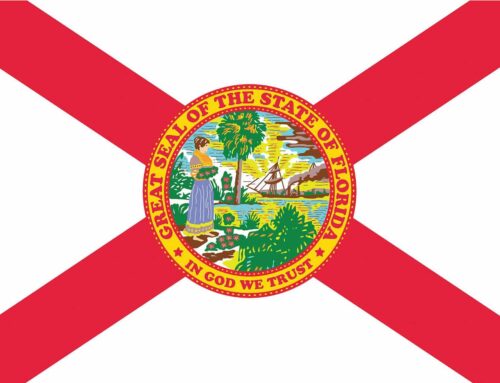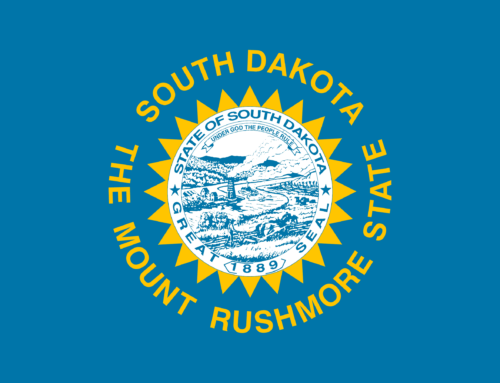RV insurance is very different from ordinary car insurance.
With car insurance, lots of people are just fine skipping collision and comprehensive car insurance. Cars are inexpensive enough on their own for many people to just write a check if their car gets damaged or totaled and keep on driving.
But RVs can easily cost hundreds of thousands of dollars. And people put a lot of their own belongings in them. Your bicycles, camping gear, computers, office equipment, bedding, and furniture can easily add thousands of dollars to a catastrophic loss.
If you can’t write a six-figure check to replace your RV and everything in it without blinking, then you won’t want to skip collision and comprehensive insurance.
On top of that, RVs are big. They take up a lot of space, and they have a lot of mass. Accidentally rear-ending someone at a traffic light in your Subaru might just be a fender-bender. Doing the same thing in your RV can easily total the car in front of you and severely injure people in it. If someone has a back or neck injury, the cn
That means you should carry liability insurance on your RV commensurate with the risk.
It’s Not Just About Low Premiums
When it comes to any kind of insurance, it’s not just about finding the lowest premium. That’s why the generic quote sites that have you enter, like, four questions and then give you a list of the cheapest premiums are garbage.
With car insurance, and RV insurance, especially, it’s a matter of balancing available coverage, pricing, optional add-ons, endorsements, and riders, and – crucially – customer experience at claim time.
The nature of insurance is this: If you make a mistake with coverage, you probably won’t find out until the worst. Possible. Time.
If God forbid you ever have a serious insurance claim, you’ll regret just going with the cheapest carrier on a generic insurance quote site. And you’ll be very glad if you invested in a good policy with a quality carrier, and had a good, professional car insurance agent working with you through all the contingencies in advance.
To make sure that when the crisis occurs, you and your family will be ok.
That’s what insurance is all about. And that’s a lot more important than saving a few dollars in premiums.
Tip: If you need to reduce your premiums, do it by increasing your deductible. Not by skimping on vital protection. Don’t put tens of thousands of dollars at risk to save $30 dollars per month!
Types of RV Coverage
If you financed your RV, your lender will require you to carry collision and comprehensive coverage. Collision insurance covers what happens to your RV when you crash it. Comprehensive covers loss or damage to your RV from other causes.
Liability. Your liability insurance covers injuries to other people or damage to other people’s property you may cause as a result of operating your RV. It’s mandatory to have some sort of liability protection to operate an RV on the roads in every state. If you get in a wreck, it’s your liability insurances that will pay to repair or replace the other vehicles, or fix the fence you backed into, or pay the other party’s medical bills – minus whatever deductible you selected.
Some states allow you to post a bond in lieu of insurance. But a bond would not provide enough coverage to protect you or an injured party in the event of an injury.
Collision. If you have a collision in your RV, this part of your insurance covers damage to your own RV. Not to the other party’s. They’ll cover your financial loss minus your deductible. Collision coverage is not required by law, but if you financed your RV, your lender will require it.
Comprehensive. This coverage protects you against damage to your RV from events other than collisions. Examples include:
- Weather damage
- Flood damage
- Theft and burglary
- Vandalism
These hazards aren’t covered by the collision part of your insurance policy.
Contents. Your standard collision and comprehensive coverage will cover the stock components that came with your RV. It won’t cover the stuff you added to it, or packed in it. If you have camping gear, electronics, furnishings, clothing, bicycles, or anything else that wasn’t bolted into the RV when it left the factory or dealership, then it won’t be covered under your comprehensive insurance policy.
So if you have comprehensive coverage on your RV but you don’t add collision coverage, and someone breaks into your RV and steals your laptop and your factory-installed stereo, then your insurance will cover the damage to the RV from the break-in, and the cost to replace your stereo. But it won’t cover your laptop.
If you have liability-only coverage, your insurance policy won’t cover anything. When you decline collision and comprehensive, you keep those risks in your pocket.
Tow Vehicles and Tow-Behind Vehicles
State laws vary on the specifics. But most states don’t require a separate additional insurance policy on RV trailers or fifth wheelers.
If your RV is a van or camper, you just have to insure those as vehicles. But that would leave you grossly underinsured.
If you have a fifth wheeler or trailer, your state may not require a separate insurance policy on those. You do have to insure the truck towing your camper or fifthwheeler. But you may not be legally required to purchase additional insurance.
But again, the vast majority of RV owners are at risk of a very significant loss in the event of an accident, natural disaster, theft, or other possible hazard.
You should also consider how to cover the vehicle you’re towing behind you.
It may be a good idea to bundle coverage of that vehicle with your RV insurance policy, to get a discount.
However, that’s not always the case. Sometimes a great RV insurance company doesn’t offer you the best deal on regular car insurance.
The more companies you can get a thorough quote from, the more likely you are to uncover the best value, all things considered.
The best thing to do is to consult an independent car insurance broker who’s not tied to just one single carrier, but who can take your application to many different competing carriers in your state.
Are you an RV “full-timer?”
Do you use your RV as your primary residence for six months out of the year or more? If so, you’re what the RV community calls a “full-timer,” as opposed to a recreational user.
That matters for coverage. You need to tell your insurance agent. Insuring an RV that’s your primary residence is very different from insuring an RV that you’re just using on weekends and vacations.
If you don’t have a homeowner’s policy or renter’s policy to cover your general liability insurance, the your RV insurance policy will have to do a lot more work for you.
Insurance coverage for a full-timer will be more expensive than insurance designed for a recreational user. But it offers much broader protection.
For example, full-time RV policies will include better liability insurance coverage, such as coverage that applies to accidents or incidents that occur while your vehicle is parked.
What’s more, this coverage will apply all year round, and not just while you’re actively on a trip.
RV Insurance and your Homeowners Insurance
It’s important to coordinate your RV and homeowner’s insurance policies. Generally, your homeowner’s insurance policy will provide protection against loss or damage to the contents in your RV. Not to your RV itself – but the contents you put in your RV. The coverage will apply up to the contents limits of your homeowner’s insurance.
This is where communication with your insurance agent is important. Your agent needs to know if you’re primarily living in your RV.
Some insurance companies have products suitable for people using their RVs as their primary residences. Others don’t.
This is one reason you should use a professional, independent car insurance broker when you’re looking for car insurance. Many times, going with the lowest monthly premium, without carefully comparing the differences in coverage and exclusions between RV insurance policies, and how they function within your overall insurance and protection plan, will leave you woefully under protected!
Do you have valuable property in your RV?
A few hundred dollars of Walmart camping gear is one thing. But if your RV will have any unusually valuable contents, you should tell your agent. Your car insurance agent can help you assess the risk of theft or damage to that property, and how best to insure it:
- Will it be covered by a separate homeowners’ or renter’s policy?
- Is it significant enough to worry about, given your deductible?
- Is it likely to be targeted for theft or burglary?
- Can you afford the risk, or are you better off transferring the risk to the insurance company?
- What is the monthly premium required to add the necessary contents protection to your policy?
Tell your agent if you expect to have valuable items in your RV, both when you’re actively using it and when it’s in storage.
“Full Replacement Cost” Coverage
Most standard insurance policies pay based on the actual cash value of the insured vehicle immediately before the loss, minus depreciation.
That means there’s generally a big gap between what a standard actual cash value policy will pay for totaled RV, minus your deductible, and what it would cost to buy a new RV of the same model with the same options and upgrades.
If your RV is totaled or stolen (and not recovered), and it’s less than five years old (for most policies), full replacement cost coverage would pay for what it actually costs to buy a new comparable vehicle, minus your deductible, of course. With a good full replacement policy, you’d get this benefit even if you aren’t the original owner.
If the vehicle is more than five model years old, full replacement coverage wouldn’t cover the cost of a brand new comparable vehicle. But if you have full replacement cost coverage, it would pay out the price you paid for it, and not a depreciated amount based on mileage, age, or wear and tear.
Parts Coverage
If your RV needs repairs, how will they assess the value of any parts that need replacing?
Some cheap policies will only pay a reduced amount for parts, based on depreciation.
But if your RV needs a new axle after an accident, you’re not going to be able to buy an axel with the same amount of miles on it that your original axel had so it’ a 1:1 swap.
Your mechanic is going to order a new axel.
If your RV insurance is cheap, you’ll have to pay for the difference in price out of your pocket.
The best RV insurance policies, on the other hand, will pay out the full cost of any needed replacement parts after a covered incident – minus your deductible.
So look at the fine print of the policy, to see how they calculate repair costs.
This is especially important if your RV is relatively old. The older the vehicle, and the greater the mileage, the more important your policy’s parts coverage will be.
Personal Effects Coverage
Regular car insurance provides little or no protection for personal effects destroyed in or stolen from your RV. But people keep a lot more of their own property in an RV than they typically do in their run-of-the-mill Kia Soul. And that property is often much more valuable.
For example, items commonly stored in RVs include:
- Camping gear
- Televisions
- Stereos and A/V equipment
- Bicycles
- Cell and satellite phones
- Shoes and clothing
- Grills, cookware, and dishes
- Bedding
But an RV-specific policy allows you to insure a large amount of your own personal effects that you store or travel with in your RV.
Most RV insurance policies will include a base amount of personal effects coverage. $3,000 is a common figure. If you have expensive items in your RV, you can buy additional coverage.
Personal effects coverage wouldn’t cover items that are factory installed, like the stock appliances that came with the RV from the manufacturer. It also wouldn’t cover things like awnings, antennas and satellite dishes. Those items would fall under permanent attachments coverage.
But if you took the roof off your RV, turned it upside down, and shook it, the stuff that would fall to the ground is the stuff covered under your personal effects coverage.
Permanent Attachments Coverage
Permanent attachments coverage protects items that aren’t necessarily factory original to the RV, but that aren’t normally removed when the RV is in storage. These include things like awnings, satellite dishes, and antennas.
Emergency Vacation Coverage
If your RV is damaged while you’re out on the road in your RV, and you can’t live in it while it’s being repaired or replaced, you’re going to be spending some money. You may need to put yourself and your family in a hotel for a while. Or you might need to fly everybody home – plus transport all the property you had stored in your RV.
Add it all up and you’ll be spending some serious coin.
Emergency vacation coverage provides cash you can use to pay for these and other unexpected costs by adding emergency vacation coverage to your policy.
Lots of car insurance companies offer emergency rental car coverage for when your insured vehicle is being repaired or replaced. But RVs often take longer to repair than your Chevy Cruz. Good RV shops have long waiting lists. You could be driving that rental or living in that hotel waiting on your RV for a while.
Insuring Your RV in the Off Season
Just because you’re not actively using your RV during the winter doesn’t mean you don’t need insurance on your RV. You might not need collision coverage while your RV is parked or in storage, and you are much less of a liability risk for the company. But you’re still at risk of theft, vandalism, or loss from flooding, fire, and tornadoes that seem to be attracted to trailers and RV parks everywhere.
RVs are also vulnerable to hail damage, wind damage, and fallen tree limbs.
If your RV is stored in a crowded storage area or even on the street, it could be damaged by other vehicles, such as other RVs and trucks in the lot, or passing garbage trucks and other large vehicles on the street.
If something happens to your RV, you’ll be glad you had coverage in place.
If you’re not planning to use your vehicle for a long period of time, you should consider storage-only RV insurance.
If your RV is in a storage yard with other large vehicles, you should tell your agent, so you will still have some collision coverage in force. If your RV will be stored away from other vehicles, so there’s no risk of a collision, then you can save money by dropping collision and liability insurance but keeping comprehensive in place, which protects you against theft, vandalism, floods, fires, critter infestation, and other hazards.
Do you Rent Out Your RV?
Many people rent out their RVs for extra income when they aren’t using them. If you are considering renting out your RV, you need more than a standard RV policy. You need a commercial policy, or a commercial endorsement.
If there’s any possibility you will rent out your RV, it’s critical to discuss this with your insurance agent. Here’s why:
If you rent out your RV without a commercial policy or endorsement and the driver renting it from you has an accident, your insurance carrier will probably deny the claim. They’ll go through the police reports and documents, and it will be clear that you allowed an unauthorized driver to drive your RV. You’ll need to pay all the claims out of your own pocket. And that could easily amount to six or even seven figures.
Foreign Travel and RV Insurance
If you’re planning on driving into Canada or Mexico (or points south of Mexico), you need to make sure your insurance mets the legal requirements in those countries.
You should also check to see if your insurance carrier extends collision and comprehensive coverage and the other riders and special endorsements into Mexico or Canada, or if their coverage stops at the border.
If they don’t extend coverage, then you’ll need to purchase the coverage you need from an insurance carrier that operates in Canada or Mexico.
But they do extend collision and comprehensive coverage outside the U.S., then you don’t have to buy full coverage when you head across the border. You can use get liability insurance while you’re abroad.
In most cases, the difference in premiums will save you hundreds of dollars per month.
Other things you should look at is how vacation emergency coverage works overseas. If you’re stranded overseas, will your policy cover tow charges, hotels, airfare, rental car reimbursement, and other things that come up?
Are medical payments covered overseas? Or do you have to line up other coverage? (If you’re over 65 and on Medicare and you have Medigap insurance, some plans will cover 80% of medically necessary care while outside the U.S., up to plan limits. Otherwise, you need to coordinate your medical payments and personal injury protection with your personal medical insurance and those of your passengers.
If you aren’t bilingual, does your carrier have bilingual emergency customer service hotline 24/7?
Protect Yourself and Your RV – Properly!
When you’ve got an RV, you’ve got a lot on the line. RVs can cost hundreds of thousands, and even millions of dollars.
And even if you have a relatively inexpensive RV, you still have a lot of liability to worry about. And if you’re spending a lot of time in your RV, you’ve got a good chunk of your personal property in your residential/recreational vehicle as well.
You owe it to yourself to get covered properly.
With liability protection commensurate with the level of risk, and that protects both others on the road and yourself against the risk of injury or death to others that you naturally take on when you drive a very large, heavy, and complicated vehicle or trailer.
You also owe it to yourself to cover your investment against all hazards: Collision, theft, vandalism, wind damage, earthquake, floods, tornadoes, pest infestation, and other.
You don’t want to trust your valuable RV and your financial security to a rookie insurance agent working out of his or her home.
Our agents are experienced, grizzled veterans working out of their homes. Who have the car insurance expertise to help you get the protection you need, and plug the gaps in your coverage.
To Get Started, click here, and fill out our brief online form. We’ll contact you and give you a thorough consultation and analysis of your RV risk and insurance needs.
And we’ll match you with the very best insurance carrier doing business in your state – or the state where you regularly park your RV.
See you on the road!
Steve “Mr. Insurance” Ludwig
CEO – Select Insurance Group






